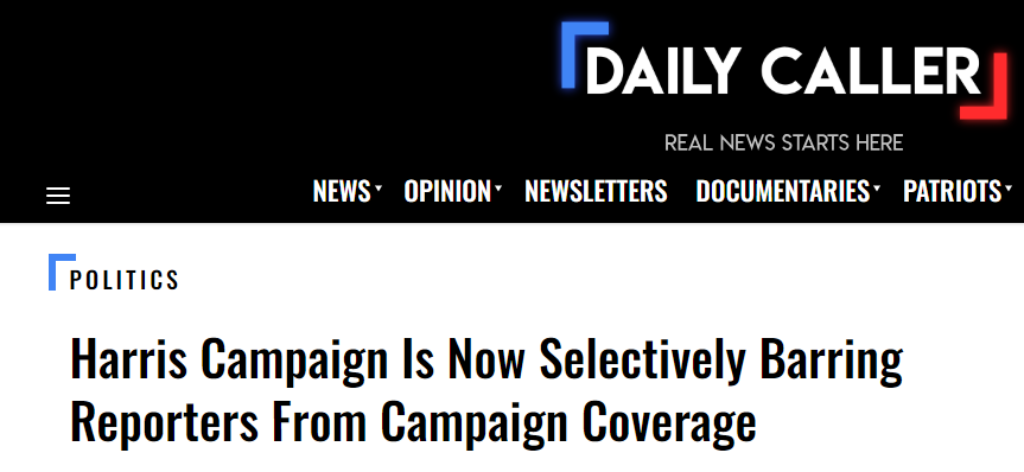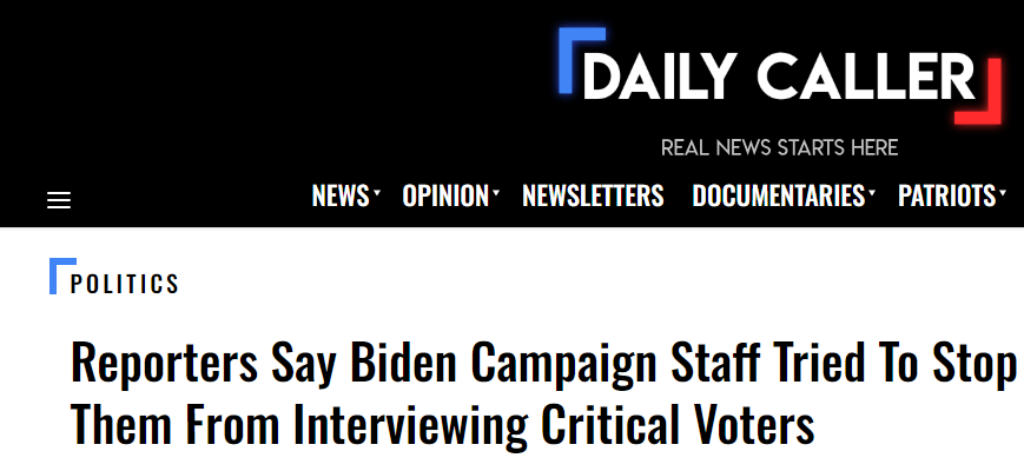The Harris-Walz campaign has recently come under scrutiny for denying access to reporters and photographers from the Pittsburgh Post-Gazette at various campaign events.

This exclusion has reportedly been connected to ongoing labor disputes within the Pittsburgh Post-Gazette’s parent company, as highlighted in an op-ed by the paper’s editor, Brandon McGinley.

Vice President Kamala Harris, along with her running mate, Democratic Minnesota Governor Tim Walz, launched their campaign efforts with a bus tour in Georgia, a critical battleground state.
Trump's Sovereign Wealth Fund: What Could It Mean For Your Money?
However, as the tour progressed, the campaign barred Post-Gazette reporters from covering significant events, including the Democratic National Convention (DNC) and the announcement of Harris as the Democratic presidential candidate.
McGinley criticized the campaign’s actions, stating that they amount to “political pandering at the expense of core democratic principles.” He argued that by blocking access to the press, the Harris-Walz campaign is engaging in the very behavior they claim to oppose within the Republican Party. McGinley expressed concerns that this approach to press relations could set a dangerous precedent, leading to selective press access based on political alliances.
The dispute between the Pittsburgh Post-Gazette and the Harris-Walz campaign is rooted in a labor action that began in October 2022. A journalists’ strike was initiated following the suspension of a legacy healthcare plan by the company’s management.
The strike, supported by the Teamsters, one of the largest labor unions in the United States, has resulted in ongoing negotiations. During this period, the union allegedly influenced Democratic officials and candidates to avoid granting interviews to the Pittsburgh Post-Gazette.
This Could Be the Most Important Video Gun Owners Watch All Year
MORE NEWS: Trump Demands Bondi To ‘DO SOMETHING!’ After Revelation of 274 FBI Agents at January 6 Event
McGinley’s op-ed further questioned the long-term implications of such selective press access, asking, “Today, the Harris-Walz campaign considers the Post-Gazette to be its enemy, and it denies us the rights accorded to others. Tomorrow, who’s next?”
The Harris-Walz campaign’s relationship with labor unions has also faced challenges. The International Brotherhood of Teamsters, one of the most significant labor unions, has not yet endorsed either Harris or former President Donald Trump. During an appearance on CBS’s “Face the Nation,” Teamsters President Sean O’Brien stated that the union would not endorse Harris until a meeting had been held to discuss labor-specific issues.

“You don’t hire someone unless you give them an interview,” O’Brien said, explaining that the union intends to meet with Harris before making any endorsement decision.
.@Teamsters President Sean O’Brien says the Democrats never said why they didn’t give him a chance to speak at the DNC, after he had addressed the RNC one month before.
“I’m not upset about it, but I can tell you this — my rank-and-file members who have been lifelong Democrats… pic.twitter.com/7mM2mTzyI9
— Face The Nation (@FaceTheNation) September 1, 2024
This incident is not the first time the Harris-Walz campaign has clashed with the press.
On July 29, Steve Peoples, the Associated Press’s chief political reporter, reported that the campaign blocked reporters from speaking with voters at a campaign event in Montgomery County, Pennsylvania.
Harris campaign is blocking reporters from talking to voters outside the press pen here at Whitmer/Shapiro event in Montgomery County, Pennsylvania.
— Steve Peoples (@sppeoples) July 29, 2024
Peoples was eventually allowed to conduct interviews after intervention from campaign headquarters.
Note that the Harris campaign staff here at PA event allowed me to leave the press pen to talk to voters after someone from Delaware headquarters intervened.
— Steve Peoples (@sppeoples) July 29, 2024
Similar incidents occurred during Joe Biden’s campaign. Following a lackluster debate performance in late June, Biden’s staff reportedly attempted to limit reporters’ access to voters whose opinions had turned negative.

Reporters from outlets such as The New York Times shared experiences where campaign staffers tried to cut off interviews when voters criticized Biden.
Kamala Harris has also faced criticism for avoiding in-depth interviews and for failing to provide a comprehensive policy platform on her campaign website. While Harris eventually participated in an interview with CNN’s Dana Bash, she did not fully address questions regarding her shifts on various policies from her 2020 campaign.
The ongoing tensions between the campaign, the press, and labor unions continue to raise questions about transparency and accessibility as the 2024 presidential election approaches.
Join the Discussion
COMMENTS POLICY: We have no tolerance for messages of violence, racism, vulgarity, obscenity or other such discourteous behavior. Thank you for contributing to a respectful and useful online dialogue.